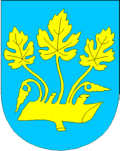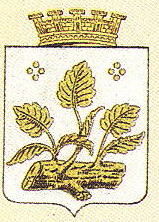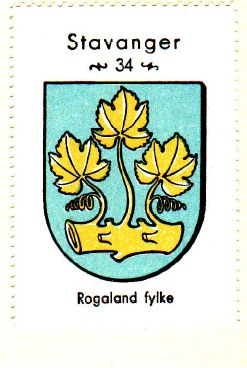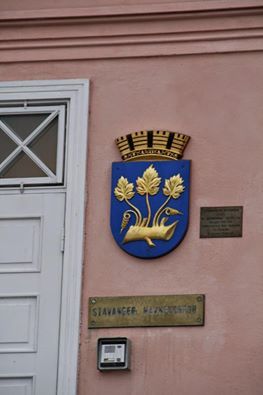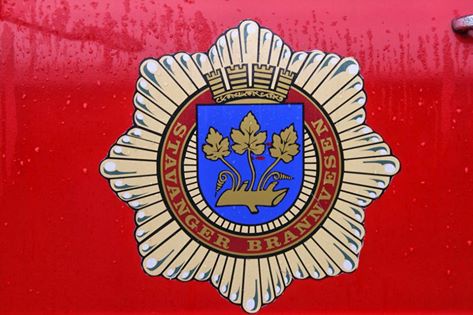Stavanger: Difference between revisions
Knorrepoes (talk | contribs) m (Text replacement - "====Official blazon====" to "===Official blazon===") |
Knorrepoes (talk | contribs) m (Text replacement - "====Origin/meaning====" to "===Origin/meaning===") |
||
| Line 11: | Line 11: | ||
På blå botn ein gull kvista vinranke. | På blå botn ein gull kvista vinranke. | ||
===Origin/meaning=== | |||
The arms were granted on August 11, 1939. | The arms were granted on August 11, 1939. | ||
Revision as of 10:20, 23 June 2017
STAVANGER
Province : Rogaland
Additions : 1965 Hetland, Madla
Official blazon
På blå botn ein gull kvista vinranke.
Origin/meaning
The arms were granted on August 11, 1939.
The oldest known seal of Stavanger dates from 1591 and shows an branch with three leaves. Later images showed the leaves as oak leaves, but as the image on the oldest seal is not very clear, there has been much speculation on what kind or plant was actually shown, like an oak, hops, aspen or a vine.
In the 19th century the branch was placed in a shield and clearly shown as an oak tree, which lasted until the early 20th century.
| Coat of arms of Stavanger in the early 20th century. |
New etymological data however may indicate that the branch is a canting element and thus a vine tree (from vinstav in Norwegian). Similarly it has been speculated that the vine is a symbol of Christ, and thus chosen as a religious symbol. So when the arms were officially granted in 1939 the branch is described as a vine branch.
| The arms in the Coffee Hag album +/- 1930 |
The arms in the city (image by Jan-Erik Løken) |
| The arms on a historical fire brigade car (image by Jan-Erik Løken) |
Contact and Support
Partners:
Your logo here ?
Contact us
© since 1995, Heraldry of the World, Ralf Hartemink 
Index of the site
Literature : Norwegian Municipal Network; Capellen, 1987
